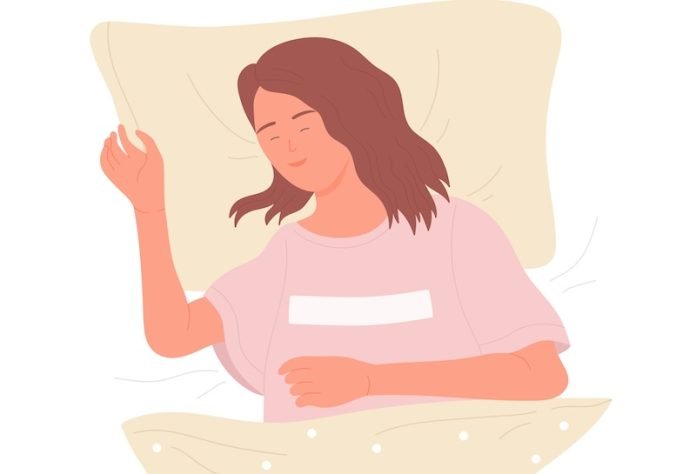
Managing blood sugar levels is crucial for overall health, particularly for individuals with diabetes. While diet and exercise are often highlighted as the primary factors in controlling blood sugar, sleep is another critical element that can significantly impact glucose regulation.
This review discusses the impact of sleep on blood sugar control, presenting the latest research findings in simple terms.
Good sleep is essential for various bodily functions, including hormone production, cellular repair, and brain health.
For people managing diabetes or trying to maintain healthy blood sugar levels, sleep plays a vital role because it affects how the body regulates and processes glucose.
Research has consistently shown that both the quantity and quality of sleep can influence blood sugar levels and insulin sensitivity. Insulin is the hormone responsible for transporting sugar from the blood into cells where it can be used for energy.
Poor sleep can disrupt this process, making the body less responsive to insulin, a condition known as insulin resistance.
Several studies have linked insufficient sleep with increased insulin resistance. One study found that even a single night of partial sleep deprivation could decrease insulin sensitivity the following day.
This means that after a poor night’s sleep, a person’s blood sugar levels could be higher than usual, even if their diet and exercise remain unchanged.
Chronic sleep deprivation, commonly defined as obtaining less than six hours of sleep per night on a regular basis, has been linked to long-term health consequences, including type 2 diabetes.
This connection is primarily due to the effects of sleep on insulin resistance and the body’s ability to manage glucose levels effectively.
Long-term sleep disruption can also lead to weight gain and obesity, further complicating blood sugar control and increasing the risk of developing diabetes.
The quality of sleep also matters. Sleep disorders such as sleep apnea, where breathing repeatedly stops and starts throughout the night, can severely disrupt sleep architecture—the pattern of sleep cycles that occur during a typical night.
This disruption can lead to poor blood sugar control. In fact, sleep apnea is commonly seen in people with type 2 diabetes, and treating this condition has been shown to improve blood sugar levels.
Moreover, the timing of sleep can influence insulin sensitivity and blood sugar levels. Shift workers, who often sleep at unusual hours due to their work schedules, tend to have a higher prevalence of metabolic syndrome and type 2 diabetes.
The misalignment of their biological clocks with their sleep schedules can impair glucose metabolism and increase the likelihood of insulin resistance.
To improve blood sugar control through better sleep, here are some practical tips based on research findings:
- Aim for 7-9 hours of sleep per night: Consistent, adequate sleep helps maintain the body’s natural rhythm and improves overall metabolic health.
- Maintain a regular sleep schedule: Going to bed and waking up at the same time each day can enhance sleep quality and support hormonal balance, including insulin regulation.
- Create a restful sleeping environment: A cool, dark, and quiet room can help promote deep, restorative sleep.
- Address sleep disorders: If conditions like sleep apnea are suspected, it’s important to seek treatment as these can directly impact blood sugar control.
In conclusion, sleep plays a significant role in regulating blood sugar levels. Ensuring adequate and quality sleep each night is a critical aspect of managing diabetes and preventing its onset.
By prioritizing good sleep hygiene, individuals can improve their blood sugar control and overall health.
If you care about diabetes, please read studies that pomace olive oil could help lower blood cholesterol, and honey could help control blood sugar.
For more information about diabetes, please see recent studies about Vitamin D that may reduce dangerous complications in diabetes and results showing plant-based protein foods may help reverse type 2 diabetes.
Copyright © 2024 Knowridge Science Report. All rights reserved.



